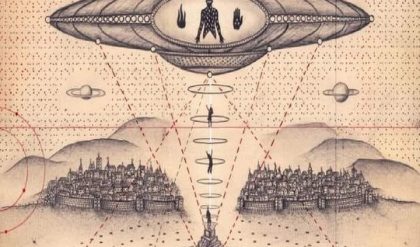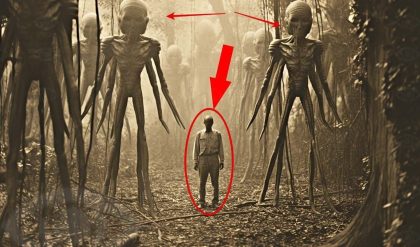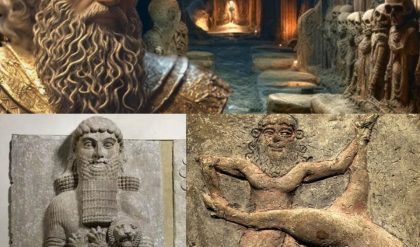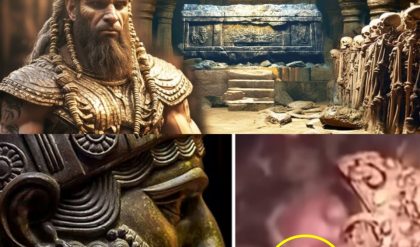In the annals of history, there are stories so strange and unbelievable that they seem more like the stuff of legend than reality. One such story is that of the enigmatic bodyguards with squid whisker heads—an ancient secret that has been buried for centuries, hidden from the public eye by those who wish to keep the truth concealed.
The Legend
According to obscure and ancient texts, there existed a group of elite bodyguards in a long-lost civilization, whose heads were adorned with what appeared to be squid-like whiskers. These bodyguards were said to have been not only the protectors of a powerful ruler but also guardians of some of the most closely guarded secrets of their time—secrets that, if revealed, could have altered the course of history.

The whisker-like appendages on their heads were believed to give them extraordinary abilities, such as heightened senses and the power to communicate telepathically. These attributes made them formidable protectors, capable of anticipating and countering threats before they could even manifest.
The Discovery
For centuries, these tales were dismissed as mere myths, stories passed down through generations that bore no resemblance to reality. However, recent archaeological discoveries have forced historians and scientists to reconsider. In a remote and previously unexplored site, researchers uncovered carvings and relics depicting humanoid figures with what appear to be squid-like appendages extending from their heads.
Even more astonishing were the remains of what could only be described as these very bodyguards. Skeletal remains with peculiar bone structures at the top of the skulls—structures that could have supported such appendages—were found alongside the remains of what is believed to be a long-forgotten ruler.
The Hidden Truth
The implications of this discovery are staggering. The existence of these bodyguards suggests that there may have been a time in human history when beings with extraordinary physical characteristics walked among us. But why was this knowledge hidden, and who sought to keep it from the world?
Some theorists suggest that this ancient civilization had access to knowledge or technology far beyond what we understand today, and these bodyguards were a product of that advanced science—possibly the result of genetic experiments or even contact with extraterrestrial beings. This could explain their unique physical traits and abilities, as well as the need to keep their existence a closely guarded secret.
Suppression of Information
Why would such a story be suppressed throughout history? The answer may lie in the power that knowledge holds. If these beings and the secrets they protected were widely known, it could challenge the established narratives of history, religion, and science. Those in power may have feared the destabilizing effect this truth could have on society, leading them to erase all traces of it from the historical record.
Over time, the truth was buried, and what little remained of these stories was relegated to the realm of myth and folklore—until now.
The Implications
The discovery of the bodyguards with squid whisker heads opens up a Pandora’s box of questions about our past. Could there be other secrets like this, hidden in the shadows of history? What else have we yet to uncover about ancient civilizations that could reshape our understanding of the world?
This revelation also raises ethical questions about the suppression of knowledge. If history has been edited to keep such secrets hidden, what responsibility do we have to uncover and share the truth, no matter how unsettling it may be?
Conclusion
The bodyguards with squid whisker heads are more than just a strange and fantastical story; they are a reminder of the mysteries that still lie hidden in our past. As we continue to explore the remnants of ancient civilizations, we must remain open to the possibility that history is far more complex and mysterious than we have ever imagined. The secrets that history doesn’t want us to know may hold the key to understanding not only our past but our future as well.





